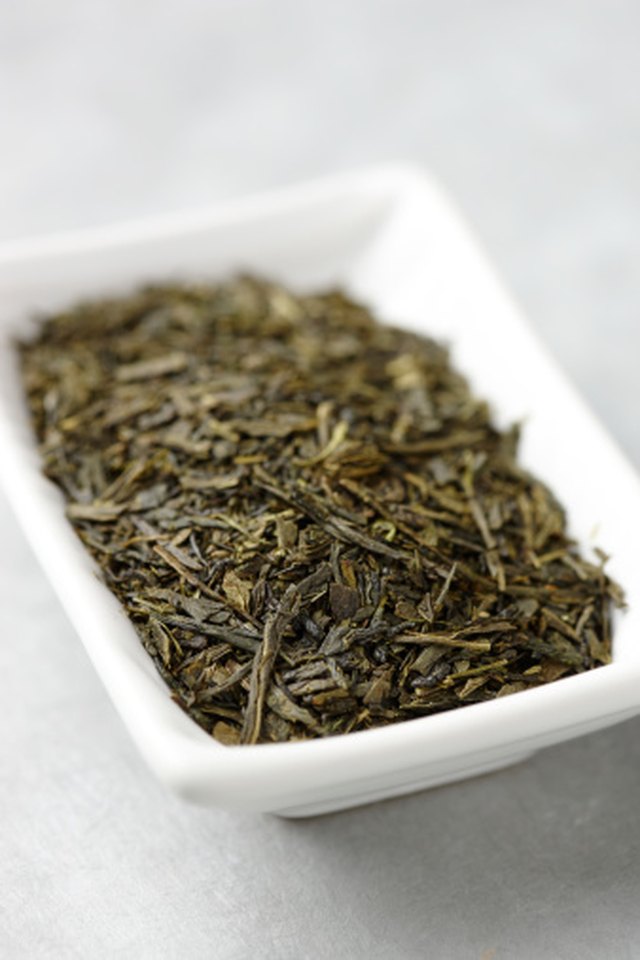How Does Green Tea Ease Allergy Symptoms?

The soothing sensation of a warm cup of green tea on a chilly day can be a comforting experience for many, but for those who suffer from allergies, it may hold a more significant benefit. Green tea, with its rich history and cultural significance, has been touted for its numerous health benefits, including its potential to ease allergy symptoms. But how exactly does green tea work its magic on allergies?
To understand the connection between green tea and allergy relief, it’s essential to delve into the world of polyphenols, specifically catechins, which are the primary antioxidant compounds found in green tea. Catechins, particularly epigallocatechin gallate (EGCG), have been shown to possess anti-inflammatory and immune-modulating properties, making them a potential candidate for alleviating allergic reactions.
One of the primary ways green tea may help ease allergy symptoms is by reducing the production of histamine, a chemical released by the body’s immune system in response to an allergen. Histamine is responsible for triggering the classic allergy symptoms, such as itching, sneezing, and congestion. The catechins present in green tea may help inhibit the release of histamine, thereby reducing the severity of allergic reactions.
In addition to its antihistamine properties, green tea has also been found to possess anti-inflammatory effects, which can help alleviate the swelling and redness associated with allergic reactions. The polyphenols in green tea may help suppress the production of pro-inflammatory cytokines, which are molecules that promote inflammation in the body. By reducing inflammation, green tea may help mitigate the discomfort and distress caused by allergies.
Another mechanism by which green tea may ease allergy symptoms is by enhancing the functioning of the immune system. The catechins in green tea have been shown to stimulate the production of regulatory T-cells, which are a type of immune cell that helps regulate the body’s immune response. By promoting a balanced immune response, green tea may help prevent the overactive immune reactions that characterize allergic responses.
While the exact mechanisms by which green tea eases allergy symptoms are still being studied, the available evidence suggests that it may be a useful adjunctive therapy for those suffering from allergies. However, it’s essential to note that green tea is not a replacement for conventional allergy treatments, but rather a complementary approach that may help alleviate symptoms.
Tomaximize the potential benefits of green tea for allergy relief, it’s recommended to consume high-quality, brewed green tea regularly. The optimal dosage and duration of treatment are still being researched, but a general guideline is to drink 2-3 cups of brewed green tea per day. It’s also essential to choose a green tea that is rich in catechins, as these compounds are responsible for the bulk of the tea’s anti-allergic effects.
In conclusion, green tea may offer a natural and complementary approach to easing allergy symptoms, thanks to its rich content of catechins and other polyphenols. By reducing histamine production, alleviating inflammation, and enhancing immune function, green tea may help provide relief from the discomfort and distress of allergic reactions. While more research is needed to fully understand the mechanisms and optimal dosage of green tea for allergy relief, the available evidence suggests that it may be a valuable addition to the arsenal of treatments for those suffering from allergies.
Can green tea completely cure allergies?
+While green tea may help alleviate allergy symptoms, it is not a cure for allergies. Allergies are a complex condition, and green tea should be used in conjunction with conventional treatments and under the guidance of a healthcare professional.
How much green tea should I drink to ease allergy symptoms?
+The optimal dosage of green tea for allergy relief is still being researched, but a general guideline is to drink 2-3 cups of brewed green tea per day. It's essential to choose a high-quality green tea that is rich in catechins.
Can I use green tea extracts or supplements instead of brewed tea?
+While green tea extracts and supplements may be convenient, they may not provide the same benefits as brewed green tea. The brewing process helps release the catechins and other polyphenols, making them more bioavailable. However, if you prefer supplements, consult with a healthcare professional to ensure you're getting a high-quality product.
In the world of allergies, finding effective and natural solutions can be a game-changer for those seeking relief from the constant barrage of symptoms. As research continues to unravel the mysteries of green tea and its effects on allergies, one thing is clear: this ancient beverage has earned its place as a valuable complementary therapy for those navigating the complex world of allergies. Whether you’re a long-time green tea enthusiast or just discovering its benefits, this versatile and ancient beverage may hold the key to a more comfortable and symptom-free life.